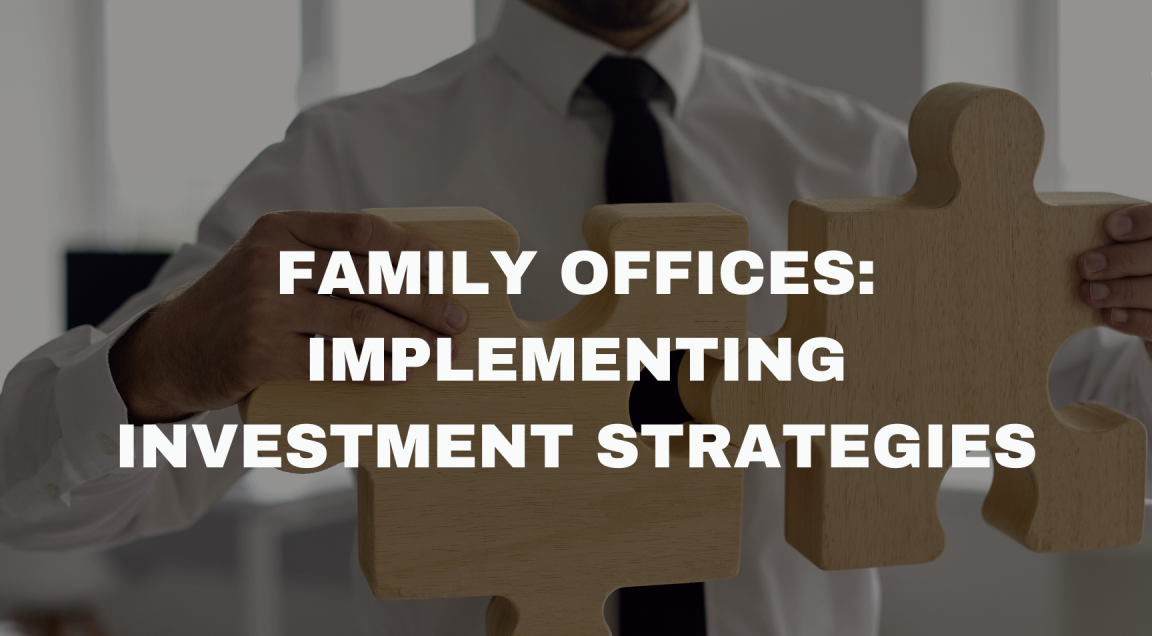In a world of fluctuating economies, family offices and market uncertainty demand new approaches to protect and grow wealth effectively. Economic uncertainties, geopolitical tensions, and rapid technological advancements have forced these institutions to rethink their investment strategies. For many ultra-high-net-worth families, maintaining wealth is no longer just about traditional investment approaches; it now requires proactive risk management, diversification, and strategic foresight.
Understanding Family Offices
Family offices are private wealth management firms that serve the financial needs of a single family or a group of families. Unlike conventional investment firms, family offices focus on long-term wealth preservation, legacy planning, and intergenerational asset management. They handle everything from tax planning and estate management to philanthropy and direct investments.
As market volatility rises, family offices increasingly leverage advanced analytics and alternative asset classes to protect wealth. Real estate, private equity, and hedge fund investments often form a core part of their portfolios. By blending traditional and alternative strategies, family offices aim to reduce exposure to sudden market swings while capturing opportunities for growth.
Strategic Diversification for Family Offices
One of the key tools family offices use to navigate uncertain markets is diversification. By spreading investments across multiple sectors, regions, and asset types, they mitigate the impact of sudden economic shifts. Family offices are increasingly exploring global equities, emerging markets, and digital assets.
For instance, some offices are incorporating ESG (Environmental, Social, and Governance) criteria into their portfolios. This not only aligns with long-term sustainability goals but also provides a hedge against regulatory and societal risks. Others are experimenting with alternative investments, such as private credit and infrastructure projects, which tend to offer more stable returns in turbulent markets.
Read Also: South Korea Plane Crash Kills 179, Crew Survives
Risk Management in Market Uncertainty
Risk management has become a critical priority for family offices. Many offices now integrate sophisticated financial modeling and scenario analysis tools to assess potential risks. By simulating market shocks and stress-testing portfolios, they can make informed decisions even under extreme conditions.
Moreover, technology plays a central role in modern family offices. AI-driven analytics help identify market patterns, predict asset performance, and optimize asset allocation. Cloud-based platforms allow for real-time monitoring of investments, while cybersecurity measures protect sensitive financial data. By embracing digital transformation, family offices improve efficiency, transparency, and responsiveness.
Read Also: Putin Apologizes to Azerbaijani President Over Plane Crash
Governance and Multi-Generational Planning for Family Offices
Family offices also focus on intergenerational wealth transfer. Effective governance structures ensure that the family’s values, vision, and financial strategies endure across generations. This includes establishing clear succession plans, educating younger family members about investment principles, and setting philanthropic priorities.
During volatile periods, governance takes on added importance. Family offices must make collective decisions that balance risk tolerance with long-term goals. Structured family councils and advisory boards often guide these discussions, ensuring both professional and familial interests are aligned.
Opportunities Amid Market Uncertainty
While market turbulence presents challenges, it also offers unique opportunities. Family offices with flexible strategies can take advantage of undervalued assets or distressed investments. Some are investing in innovative sectors like renewable energy, biotech, and emerging technology, positioning themselves for long-term growth.
Moreover, global diversification enables family offices to capitalize on regional differences in economic cycles. By maintaining liquidity and strategic readiness, they can move quickly when favorable opportunities arise. This proactive approach allows families to preserve wealth while seeking new avenues for expansion.
Read Also: Manmohan Singh, Ex-Indian PM, Dies at 92
Conclusion
Family offices adapting to global market volatility demonstrate a blend of caution, foresight, and innovation. By embracing diversification, technology, risk management, and strong governance, these institutions safeguard wealth and prepare for the future. The ability to act decisively in uncertain times separates successful family offices from those that merely react to market changes.
As global financial landscapes continue to evolve, family offices remain essential instruments for preserving intergenerational wealth, turning challenges into opportunities, and securing a stable financial legacy for generations to come.


